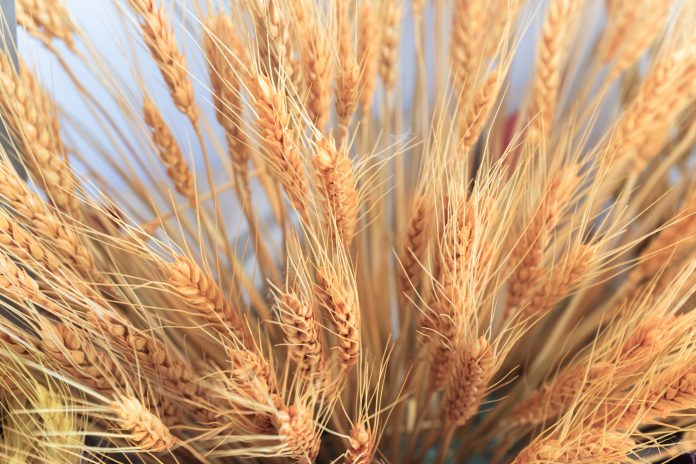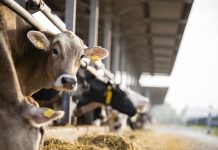Claire Bury, the Deputy Director-General of DG Health and Food Safety (SANTE) at the European Commission, highlights how the EU is actively addressing the challenges of climate change to ensure that Europe’s food systems remain prepared and safe
Climate change threatens every aspect of life, posing serious risks across all sectors. Food safety is no less vulnerable than any other policy area to this threat. The impact of climate change is felt all along the food chain, affecting our water, air, soil, seeds, plants and animals. Changing weather conditions and extreme climatic events heighten the risk of plant and animal diseases, relocate such diseases geographically and increase the spread of vector-borne and water-borne pathogens. Flooding can spread micro-organisms, contaminants and harmful chemicals, which can make their way into our crops and water supplies. Hotter, wetter conditions provide ripe environments for harmful pathogens such as mycotoxin-producing fungi, Salmonella and E. coli. Changes in temperature also mean the emergence of new and unfamiliar pests, potentially requiring increased pesticide use. Mitigating all these risks requires a proactive, agile and science-based response to protect our food sources and our consumers, while adapting for the future.
Ensuring food safety in the EU
The EU currently has the highest levels of food safety in the world. This is thanks to our robust body of legislation to regulate, monitor, and protect food safety standards, as well as our rapid alert systems to respond to any new threat that arises. The European Commission’s food safety policy is firmly rooted in a One Health approach, which recognises the deep interconnection between the health of humans, animals, plants, and our ecosystems. This One Health approach is fundamental to addressing the threats of climate change, as was recognised in the COP28 Declaration on climate and health.
In the face of the new challenges that climate change poses to food safety and our food systems, the EU’s legally binding requirements in this area become ever more important. For example, we have EU rules limiting the number of contaminants that can be present in the food chain. As such, substances that are likely to increase with climate change, such as mycotoxins, are less likely to enter our food chain at high levels. We set strict limits for these substances and also conduct regular soil surveys to monitor their levels across the EU to protect European consumers.
We also have strong traceability and recall systems in place for when food safety risks do arise. These systems are vital in responding to the types of threats that may increase with climate change. For example, if pathogens such as Salmonella or E. coli are detected in the food chain, the EU Rapid Alert System for Food and Feed (RASFF) ensures information is swiftly exchanged between Member States, so that authorities can take immediate action by recalling products or blocking imports. This quick response helps prevent unsafe food from reaching consumers.
The European Food Safety Authority (EFSA)
The European Food Safety Authority (EFSA) plays a vital role in our food safety framework, contributing to ensuring it is fit for purpose and adapted to new realities. Where needed, EFSA’s risk assessments, which help shape our policy responses, take into account climate-related hazards in our food safety systems, allowing us to respond accordingly. In addition, EFSA has established a network of international organisations and scientists to identify and define emerging risks for food and feed safety, plant and animal health and nutritional quality, including risks related to climate change. The Commission is also investing in new research in this area, under the Horizon Europe programme. Food 2030 is the EU’s research and innovation policy, which is specifically designed to support the transition towards climate-smart food systems that preserve natural resources and help reduce greenhouse gases.
Adapting to change
The European Commission is also placing great emphasis on reviewing its policies and offering new solutions to address new realities, where possible. A prime example of this is the proposal on New Genomic Techniques (NGTs). NGTs offer both precise and efficient ways to edit the genes of plants and can significantly contribute to the fight against climate change. They can enhance crop resilience by supporting the development of crops that require fewer resources, such as water and nitrogen. Climate-resistant crops can be propagated to be more tolerant to drought, heat or flooding. Greater resistance to pests and pathogens of plants produced using certain NGTs can reduce the need for chemical pesticides and fertilisers, which contribute to greenhouse gas emissions and environmental degradation. These various advancements not only help mitigate the effects of climate change but also contribute to the sustainability and resilience of our food systems.
In 2023, the Commission acknowledged the positive role NGTs can play in combating climate change and proposed a specific framework for plants and their products derived from certain NGTs. We are optimistic that this proposal will soon be agreed upon by EU Member States and the European Parliament, providing farmers with new opportunities in the face of climate change challenges.
At the global level, the Commission intends to help developing countries in managing the risks from flooding and scarcity of water by efficient water management and treatment, and by the safe reuse of water, for example, in fresh produce production. It thus took the lead in developing Codex guidelines on the microbiologically safe use and reuse of water in food production, which is relevant in this context, as well as for businesses in the EU.
In conclusion, there is no denying that climate change poses a major threat to food safety. However, Europeans can rest assured that the Commission is responding proactively to this. We are constantly working to mitigate harmful elements in food, adapting our assessment and regulatory framework to modern realities and investing in increased monitoring and crisis preparedness in our food systems. Despite the grim outlook that climate change presents, EU consumers should rest assured that their food is safe, while farmers are being supported with new techniques to mitigate the impacts. We will continue to be vigilant, adaptive and reactive to new developments as they arise, to protect food safety across the EU.











